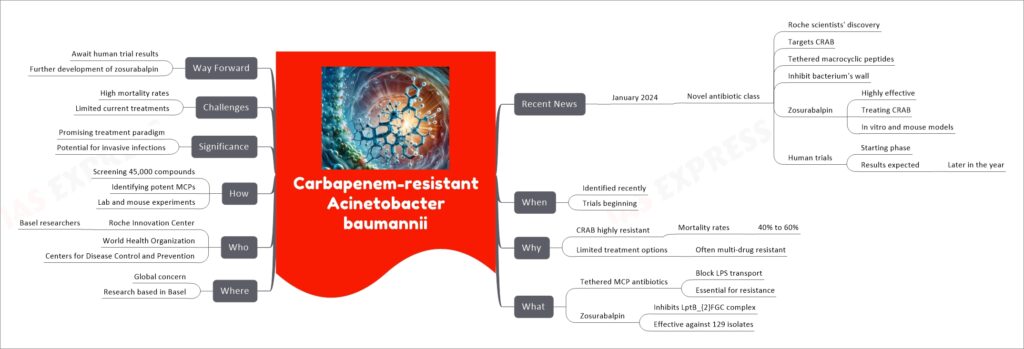Carbapenem-resistant Acinetobacter baumannii

Carbapenem-resistant Acinetobacter baumannii (CRAB) is a highly drug-resistant bacterial pathogen causing nosocomial infections with mortality rates between 40% to 60%. Recently, scientists at Roche have discovered a novel class of tethered macrocyclic peptide (MCP) antibiotics effective against CRAB. These MCPs work by blocking the transport of lipopolysaccharide, crucial for the bacterium’s resistance. The promising antibiotic candidate, zosurabalpin, has shown high efficacy in vitro and in mouse models, with human clinical trials underway. In India, a study highlighted the presence of bla_{OXA-51-like} in all CRAB isolates, with bla_{OXA-23-like} and bla_{NDM-like} being predominant, indicating a potential emerging lineage of carbapenem resistance.
If you like this post, please share your feedback in the comments section below so that we will upload more posts like this.

